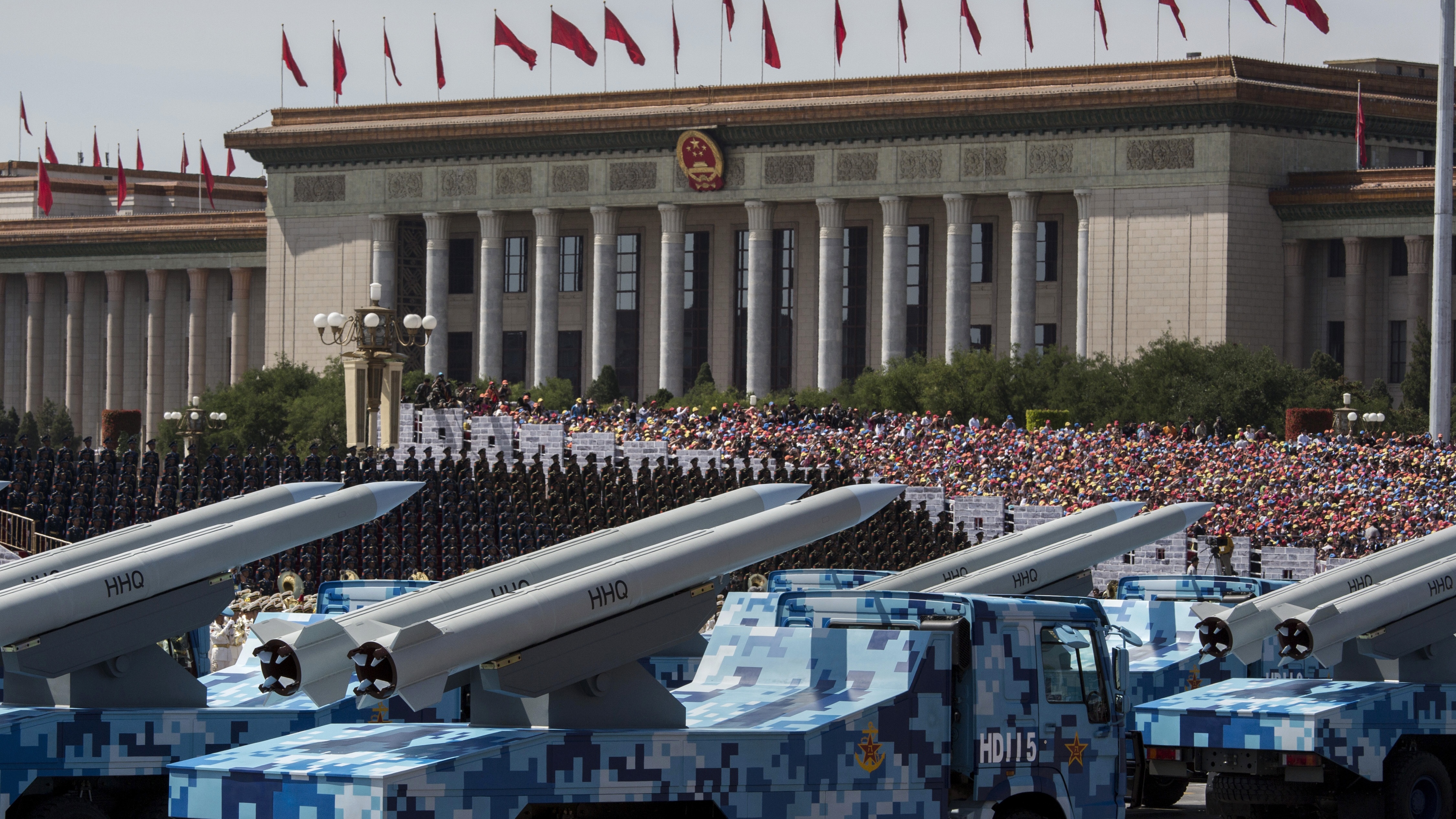Hundreds of UK academics probed over links to Chinese ‘weapons of mass destruction’
Scholars may face up to ten years in prison if found to have unwittingly handed secrets to Beijing

A free daily email with the biggest news stories of the day – and the best features from TheWeek.com
You are now subscribed
Your newsletter sign-up was successful
Up to 200 academics from more than a dozen UK universities are being investigated on suspicion of unintentionally helping the Chinese government build weapons of mass destruction.
The scholars are “suspected of transferring world-leading research in advanced military technology such as aircraft, missile designs and cyberweapons”, The Times reports.
In doing so, they would have violated “strict export laws intended to prevent intellectual property in highly sensitive subjects being handed to hostile states”, the paper continues. Many of the academics are thought to have “unwittingly” breached the laws by striking commercial deals with Chinese companies.
The Week
Escape your echo chamber. Get the facts behind the news, plus analysis from multiple perspectives.

Sign up for The Week's Free Newsletters
From our morning news briefing to a weekly Good News Newsletter, get the best of The Week delivered directly to your inbox.
From our morning news briefing to a weekly Good News Newsletter, get the best of The Week delivered directly to your inbox.
If found guilty, they could each face a maximum of ten years in prison. A source told The Times that “we could be seeing dozens of academics in courts before long”.
“If even 10% lead to successful prosecutions, we’d be looking at around 20 academics going to jail for helping the Chinese build super-weapons,” the source said.
News of the investigation comes just over a week after The Times reported that thousands of Chinese academics and researchers may be blocked from entering Britain amid concerns about the theft of intellectual property.
The Foreign Office is said to be introducing security vetting for academics and researchers working on national security issues, in response to fears that Chinese spies may acquire technology and data that could benefit Beijing.
A free daily email with the biggest news stories of the day – and the best features from TheWeek.com
The Telegraph revealed last week that three Chinese spies posing as journalists have been expelled from Britain in the past year. The trio, who arrived in the country on journalism visas, were “understood to be intelligence officers for Beijing’s Ministry of State Security”, according to the paper.
Last week also saw Ofcom revoking the licence that allowed China Global Television Network, an English-language satellite news channel, to broadcast in the UK.
The communications watchdog cited a “lack of editorial control and links to China’s ruling Communist Party”, Associated Press reports.
Chas Newkey-Burden has been part of The Week Digital team for more than a decade and a journalist for 25 years, starting out on the irreverent football weekly 90 Minutes, before moving to lifestyle magazines Loaded and Attitude. He was a columnist for The Big Issue and landed a world exclusive with David Beckham that became the weekly magazine’s bestselling issue. He now writes regularly for The Guardian, The Telegraph, The Independent, Metro, FourFourTwo and the i new site. He is also the author of a number of non-fiction books.
-
 The ‘ravenous’ demand for Cornish minerals
The ‘ravenous’ demand for Cornish mineralsUnder the Radar Growing need for critical minerals to power tech has intensified ‘appetite’ for lithium, which could be a ‘huge boon’ for local economy
-
 Why are election experts taking Trump’s midterm threats seriously?
Why are election experts taking Trump’s midterm threats seriously?IN THE SPOTLIGHT As the president muses about polling place deployments and a centralized electoral system aimed at one-party control, lawmakers are taking this administration at its word
-
 ‘Restaurateurs have become millionaires’
‘Restaurateurs have become millionaires’Instant Opinion Opinion, comment and editorials of the day
-
 US, Russia restart military dialogue as treaty ends
US, Russia restart military dialogue as treaty endsSpeed Read New START was the last remaining nuclear arms treaty between the countries
-
 What happens now that the US-Russia nuclear treaty is expiring?
What happens now that the US-Russia nuclear treaty is expiring?TODAY’S BIG QUESTION Weapons experts worry that the end of the New START treaty marks the beginning of a 21st-century atomic arms race
-
 Epstein files topple law CEO, roil UK government
Epstein files topple law CEO, roil UK governmentSpeed Read Peter Mandelson, Britain’s former ambassador to the US, is caught up in the scandal
-
 Iran and US prepare to meet after skirmishes
Iran and US prepare to meet after skirmishesSpeed Read The incident comes amid heightened tensions in the Middle East
-
 Israel retrieves final hostage’s body from Gaza
Israel retrieves final hostage’s body from GazaSpeed Read The 24-year-old police officer was killed during the initial Hamas attack
-
 China’s Xi targets top general in growing purge
China’s Xi targets top general in growing purgeSpeed Read Zhang Youxia is being investigated over ‘grave violations’ of the law
-
 Panama and Canada are negotiating over a crucial copper mine
Panama and Canada are negotiating over a crucial copper mineIn the Spotlight Panama is set to make a final decision on the mine this summer
-
 Why Greenland’s natural resources are nearly impossible to mine
Why Greenland’s natural resources are nearly impossible to mineThe Explainer The country’s natural landscape makes the task extremely difficult